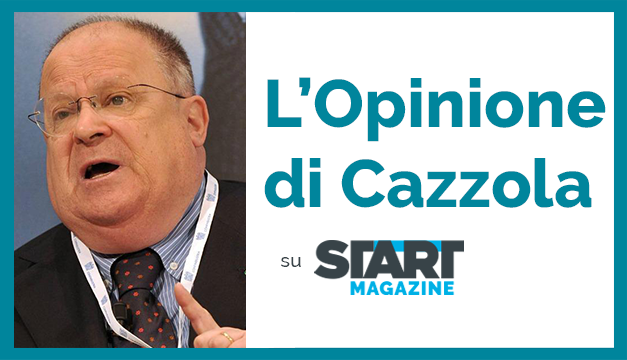On Covid I see too many Savonarolas

The boundaries of legal and administrative provisions have now been crossed to leave the field open to an ethic of resilience to contagion that leads to blame even the exercise of what is allowed. Giuliano Cazzola's comment
“And I was counting my teeth on the stamps / I was like 'Thank God, Merry Christmas / I felt normal'.
So sang the great Fabrizio De André.
He would never have imagined that, one day, the expectation of the Christmas holidays as an opportunity for encounters (“ Christmas with yours ''), for an exchange of affections, perhaps even for holidays, would be considered a proof of abnormality if not even of irresponsibility.
“I am speechless that there is talk of skiing with 600 deaths a day. Go skiing for fun knowing that this will cause an increase in infections and deaths? I think this is not a normal country ”.
The one who comments on the theme of holidays in the snow during the Christmas period is Andrea Crisanti, director of the microbiology laboratory of the University of Padua.
But he is not the first nor the only one. President Conte began by releasing comments on kisses, hugs and dinners on live TV that would have been better avoided.
The boundaries of legal and administrative provisions have now been crossed to leave the field open to an ethics of resilience (but who invented this word ?!) to the contagion that induces even the exercise of what is allowed to be blamed.
Take the case of the reopening of shops in some large cities: people line up in a disciplined line, masked and spaced out, to go one by one to shop in equipped premises in compliance with safety conditions; but a few hours later they are criticized by the authorities and by the virology high priests and indicated on the news as possible infectors, unable to resign themselves to the frugal isolation imposed by the virus.
But the lightning of the new Savonarola, preachers of austere life regimes, concentrated on the reopening of the snow slopes.
A sort of Specter at European level is even entering into action with the aim of avoiding the free circulation of skis and reserving, at most, the use of the slopes, for residents or those who, after a descent or two, come home without staying on site. It means that the '' snow trains '' which, in the twenty-year period, allowed the working classes to have a winter '' quickie '' by taking their skis with them will be restored.
It is evident that the problem is not the slopes, which every skier uses in a "spaced" way from others; neither the chairlifts nor the cable cars, where it is possible to limit the number of people transported and to mark the place that each of them can occupy. It seems then that the problem lies in the opening of hotels, second homes, in the '' rubbing '' through the streets of the mountain resorts.
Prohibiting or limiting snow sports is aimed at avoiding gatherings and responds to the same logic that led to the '' mitigation '' measures adopted (unnecessarily) in the second phase, such as the closure of restaurants, cinemas, theaters, swimming pools, gyms and schools: all places where people were in relative safety precisely because they had reopened after the lockdown, equipping themselves for this purpose.
But the debate that – in the opinion of the writer – seems to be the consequence of strong pre-holiday libations is that which concerns the celebration of midnight mass. Even the European Commission intervened, recommending a "restricted" Christmas.
The time of mass will be brought forward (in order to also speed up the unfolding of the '' Dinner '' on the eve), the places reserved for the faithful will be limited (as always since the churches have reopened), and the singing of religious hymns will be prohibited , even while wearing the mask.
How it is possible to infect, by singing softly, the neighbor, if spaced and with protected airways, remains a mystery.
It is not clear whether, following the rite, the faithful can '' respond '' to the priest.
What to say? We have returned to the '' Church of silence ''.
After all, it was Walter Veltroni who wondered why the churches remained open and the theaters closed, as if theatrical performances still retained the sacredness attributed to them in Ancient Greece. Finally, without taking anything away from the seriousness of the health situation and the pietas due to the victims of the infection, it is dishonest to blame, on the ethical level, those who are prepared to lead that much of a normal life that is allowed.
In 2019 there were an average of 1,758 deaths from illness per day, without anyone being asked to be ashamed to go on vacation.
This is a machine translation from Italian language of a post published on Start Magazine at the URL https://www.startmag.it/mondo/su-covid-vedo-troppi-predicatori-di-austeri-regimi-di-vita/ on Thu, 03 Dec 2020 09:21:58 +0000.
